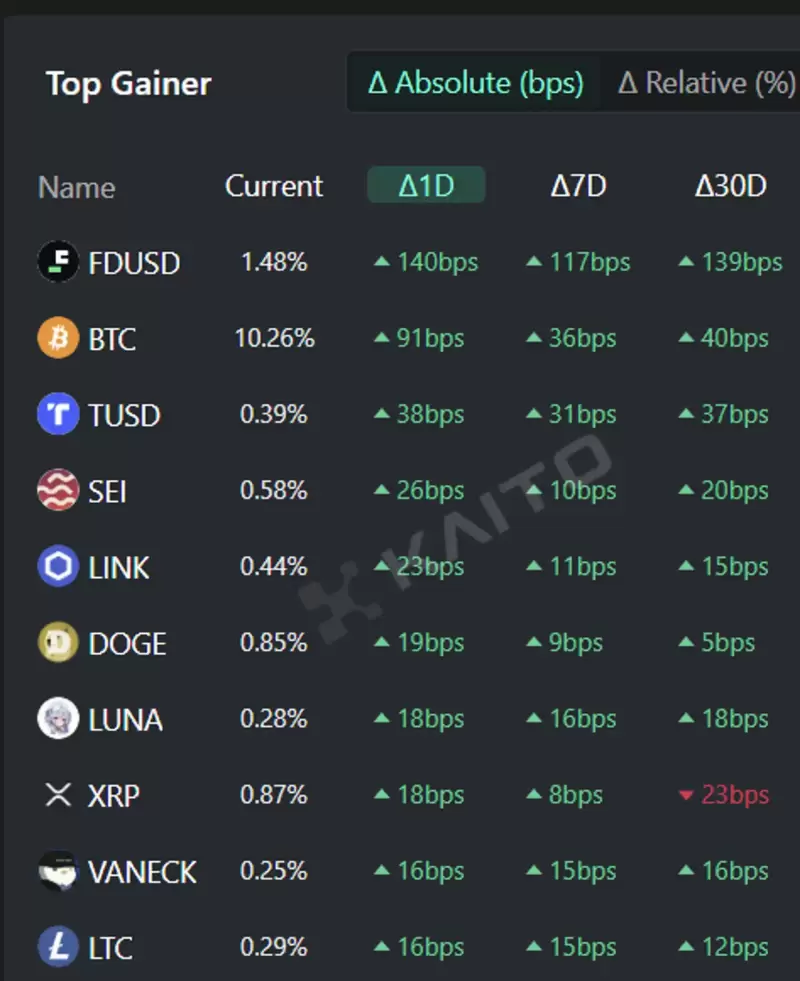 |
|
 |
|
 |
|
 |
|
 |
|
 |
|
 |
|
 |
|
 |
|
 |
|
 |
|
 |
|
 |
|
 |
|
 |
|
Cryptocurrency News Articles
AI Agent: A New Era of Intelligent Assistance in Web3
Jan 02, 2025 at 03:04 pm
Since the second half of this year, the topic of AI Agent has continued to rise. At first, the AI chatbot terminal of truths attracted widespread

With the continuous heating up of the AI Agent topic in the second half of this year, at first, the truths AI chatbot terminal attracted widespread attention for its humorous posts and replies on X (similar to "Robert" on Weibo), and received a $50,000 grant from a16z founder Marc Andreessen. Inspired by its published content, someone created the GOAT token, which rose by more than 10,000% in just 24 hours. The topic of AI Agent immediately attracted the attention of the Web3 community. Later, the first decentralized AI trading fund based on Solana, ai16z, came out, launched the AI Agent development framework Eliza, and triggered a dispute over uppercase and lowercase tokens. However, the community still has an unclear concept of AI Agent: What is the core of AI Agent? How is it different from the Telegram trading robot?
How it works: Perception, reasoning, and autonomous decision-making
AI Agent is an intelligent agent system based on a large language model (LLM) that can perceive the environment, make reasoning decisions, and complete complex tasks by calling tools or performing operations. Workflow: Perception module (obtaining input) → LLM (understanding, reasoning and planning) → tool calling (task execution) → feedback and optimization (verification and adjustment).
Specifically, AI Agent first obtains data (such as text, audio, images, etc.) from the external environment through the perception module and converts it into structured information that can be processed. As a core component, LLM provides powerful natural language understanding and generation capabilities, acting as the "brain" of the system. Based on the input data and existing knowledge, LLM performs logical reasoning to generate possible solutions or formulate action plans. Subsequently, AI Agent completes specific tasks by calling external tools, plug-ins or APIs, and verifies and adjusts the results based on feedback to form a closed-loop optimization.
In the application scenarios of Web3, what is the difference between AI Agent and Telegram trading robots or automated scripts? Take arbitrage as an example. Users want to conduct arbitrage transactions under the condition that the profit is greater than 1%. In Telegram trading robots that support arbitrage, users set up trading strategies with profits greater than 1%, and the Bot begins to execute. However, when the market fluctuates frequently and arbitrage opportunities are constantly changing, these Bots lack risk assessment capabilities and execute arbitrage as long as the profit is greater than 1%. In contrast, AI Agent can automatically adjust its strategy. For example, when the profit of a transaction exceeds 1%, but through data analysis, the risk is too high, and the market may suddenly change and cause losses, it will decide not to execute the arbitrage.
Therefore, AI Agent is self-adaptive. Its core advantage lies in its ability to self-learn and make decisions autonomously. It can adjust its behavior strategy based on feedback signals through interaction with the environment (such as the market, user behavior, etc.) to continuously improve the performance of task execution. It can also make decisions in real time based on external data and continuously optimize its decision-making strategy through reinforcement learning.
Does this sound a bit like a solver in the intent framework? AI Agent itself is also a product based on intent. The biggest difference between it and the solver in the intent framework is that the solver relies on precise algorithms and is mathematically rigorous, while AI Agent decision-making relies on data training, and often requires continuous trial and error during the training process to approach the optimal solution.
AI Agent Mainstream Framework
AI Agent framework is an infrastructure for creating and managing intelligent agents. Currently in Web3, popular frameworks include Eliza from ai16z, ZerePy from zerebro, and GAME from Virtuals.
Eliza is a versatile AI Agent framework built with TypeScript. It supports running on multiple platforms (such as Discord, Twitter, Telegram, etc.), and through complex memory management, it can remember previous conversations and contexts, and maintain stable and consistent personality traits and knowledge answers. Eliza uses the RAG (Retrieval Augmented Generation) system, which can access external databases or resources to generate more accurate answers. In addition, Eliza integrates a TEE plug-in, allowing deployment in TEE to ensure data security and privacy.
GAME is a framework that enables and drives AI Agents to make autonomous decisions and actions. Developers can customize the behavior of agents according to their needs, expand their functions, and provide customized operations (such as social media posting, replying, etc.). Different functions in the framework, such as the agent's environmental location and tasks, are divided into multiple modules to facilitate developers to configure and manage. The GAME framework divides the decision-making process of AI Agents into two levels: high-level planning (HLP) and low-level planning (LLP), which are responsible for tasks and decisions at different levels. High-level planning is responsible for setting the overall goals and task planning of the agent, making decisions based on goals, personality, background information and
Disclaimer:info@kdj.com
The information provided is not trading advice. kdj.com does not assume any responsibility for any investments made based on the information provided in this article. Cryptocurrencies are highly volatile and it is highly recommended that you invest with caution after thorough research!
If you believe that the content used on this website infringes your copyright, please contact us immediately (info@kdj.com) and we will delete it promptly.
-

- Ripple (XRP) Introduces Its RLUSD Stablecoin to the Stablecoin Market
- Apr 03, 2025 at 04:00 pm
- Ripple introduced its RLUSD stablecoin to the stablecoin market through its launch on Kraken cryptocurrency exchange. The USD-pegged stablecoin aims to boost its cross-border payment functions and integrate with the payment platform.
-

-

- Bitcoin (BTC) Price Consolidation May Be Precursor to a Market Drop, Analyst Says
- Apr 03, 2025 at 03:55 pm
- Bitcoin has seen a notable price consolidation over the past few weeks, trading between the $84,000 and $86,000 levels. Despite the initial surge in price, the cryptocurrency has faced a decline of 3.7% in the past week and nearly 10% in the past month, signaling a period of stagnation in its upward momentum.
-

- The OFFICIAL TRUMP price plummeted over 9% in the last 24 hours to trade at $9.29
- Apr 03, 2025 at 03:55 pm
- The drop in the TRUMP price comes after US President Donald Trump signed an executive order establishing reciprocal tariffs on trading partners and a 10% baseline tariff on all imports from all countries.
-

-

-

- FDUSD, BTC, TUSD, SEI, and LINK are the top 5 virtual asset-related keywords attracting the most interest
- Apr 03, 2025 at 03:45 pm
- According to the Token Mindshare (a metric quantifying the influence of specific tokens in the virtual asset market) top gainers from the AI-based Web3 search platform Kaito
-

-





























































